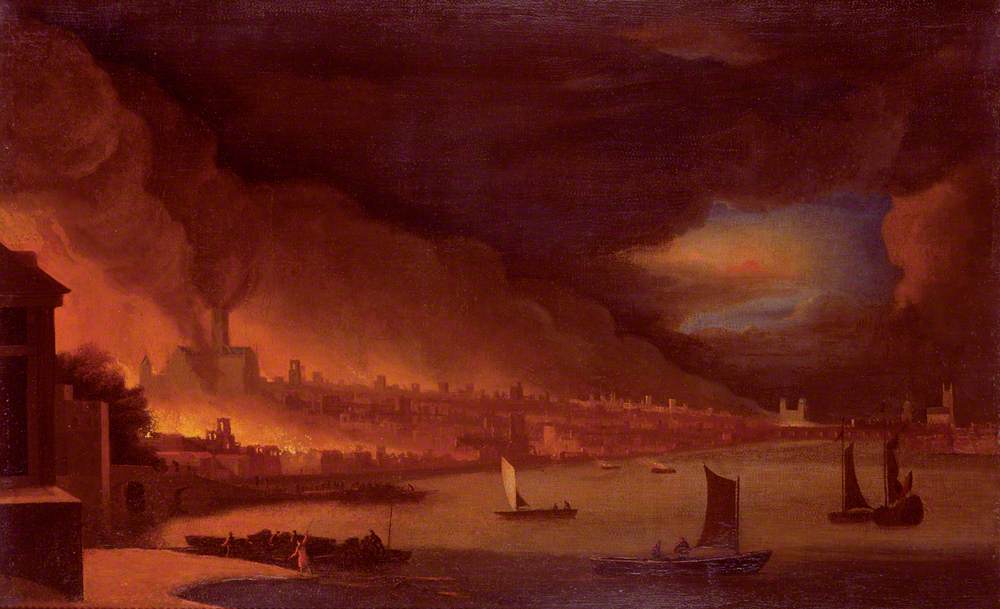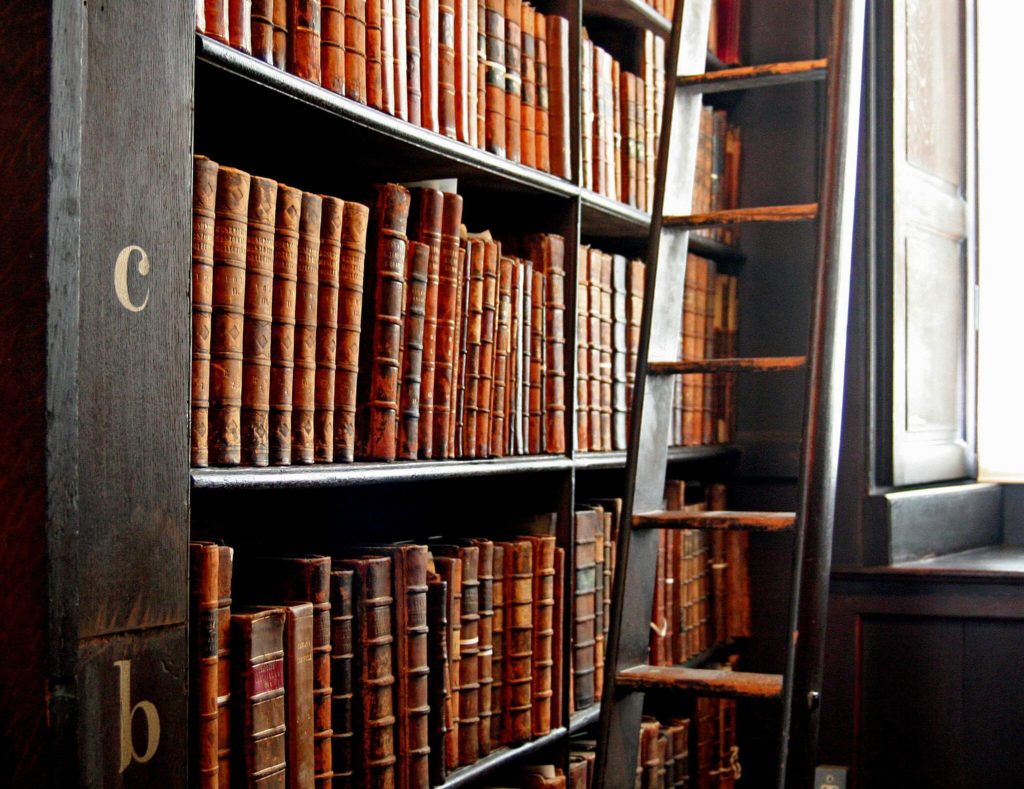Posted by e.m.vine@exeter.ac.uk
20 February 2024Emily Vine
Our first blog post introduced the different features of early modern wills, and provided some examples of how we can determine the ‘meaning’ ascribed to some of the objects and possessions listed in them. This blog post is the first in our ‘Will of the Month’ series. Each month we will put a spotlight on just one of the 25,000 wills that form part of our study. The blog posts will focus on some of the most exciting or unusual wills that we’ve found – so you can look forward to King James II’s golden coronation boots, and a Lincolnshire farmer’s personalised cows. Each post provides a closer look at one individual’s life, relationships and personal effects; the bequests they made and what they may have meant.

Today’s post explores the striking will of Josias Alsop, a clerk who lived in ‘St Clements Eastcheap’ in London, and whose will was proved on 9 October 1666, one month after the Great Fire that ripped through the old City of London in early September of that year.[1] Alsop is mentioned in Samuel Pepys’ diary in 1661, where he is named as the minister of St Clement Eastcheap. Pepys described him as ‘indeed an able man, but as all things else did not come up to my expectations’.[2]
Alsop was born in Somerset in 1610, and likely studied at Christ’s College Cambridge. His will accounts for these facets of his early life: he left twenty pounds to the poor of the parish of Norton Fitz-warren in Somerset, so that the ‘Children borne of Poor and Pious parents… may be Bound out Apprentices’, as well as ‘tenn pounds’ to ‘Christs Colledge Library’. He had a sister, Elizabeth Rosseter, who had moved to New Haven Connecticut: in his will he left two hundred pounds to ‘my sister in New England or to her Children if she be dead’. Elizabeth outlived her brother and is recorded to have died in 1669. Alsop ostensibly did not marry or have children: his other familial bequests are to the sons of his brother Tymothy. He also left money to both the poor and his friends in the parish of St Clement Eastcheap, the parish church of which was destroyed by the Great Fire in the time between when he made his will (12 August 1666) and the day when it was proved (9 October 1666). Faced with the destruction of the church he had been attached to, as well as the streets and houses that surrounded it, Alsop must have witnessed significant upheaval in the final weeks of his life. He had asked to be buried in that parish church, with a simple monument: John Strype’s ‘Survey of London’ instead notes that he was buried a mile and a half away in St James Clerkenwell.[3]

Alsop was a man of considerable means: a minister, university-educated, and in a position to leave bequests worth hundreds of pounds to family, friends, and the poor of London and Somerset. His life was touched by some important facets of the seventeenth century: a major event in the form of the Great Fire, and the experience of family members who travelled to New England. Yet one of the most interesting features of Alsop’s will is the description of his intentions for the dispersal of his possessions, in particular, his intentions for his books and papers. He first of all gave his friend ‘Doctor Christopher Shute’ a copy of ‘waltons Hebrew Bible’. Shute was likely the fellow minister Christopher Shute who in 1663 was the Rector of St Vedast, Foster Lane, and ‘waltons Hebrew Bible’ refers to one or more volumes of the Polygot Bible edited by Brian Walton between 1654 and 1657. This is the only book specifically named in the will: it appears to have been a valuable and personally meaningful text gifted to a fellow minister. In the clause that followed this, Alsop set out directions for the ‘disposal’ of all his other (unnamed) books and papers:
I Committ to the said
Doctor Shute and to myne Executor Mr John Prestwood All my other Books
And Papers whatsoever to be thus disposed of ffirst I will that all my
Papers or Paperbooks marked with this like signe of the Crosse (+)
Be cast unto the ffire and consumed to Ashes without suffering any part
Of them to be read, when this is done I will that the rest of my Papers
And Paperbooks And all my other books be Lockt up in Trunks or Boxes
And kept for that Child of my brother Tymothy Alsopps who shall become
Ministers And if neither of his sonnes become ministers I will that
They be given to Doctor Christopher Shute to doe with them what he
Pleaseth upon this Condicon that he keeps to himself the Printed books or
Sell them if he list As for my Papers and written Books I will that he
Promise faithfully to myn Executor that he will have them all burned at
his death.

We don’t know the content of the papers and paperbooks that were to be condemned to the flames, but it is suggested that some of these were Alsop’s own writings that he didn’t want to be read. By marking them with a cross Alsop had proactively planned their disposal and anticipated his death (despite being only in his mid-fifties). He trusted only his friends Shute and Prestwood to dispose of them entirely, although he was happy for Shute to keep his other writings during his lifetime, on condition that they were burned upon Shute’s own death. Alsop also had clear intentions for his other printed books, perhaps theological texts similar to Walton’s bible, that would be of use to his nephews if they entered the ministry.
Books were important to Josias Alsop, a university-educated minister who had also left money to Christ’s College Library. From his will we get a sense of the meaning he ascribed to certain books – the Hebrew bible bequeathed to a fellow minister and friend, and other texts left to his nephews in the hope that they would follow in his ministerial footsteps. So too do we get a sense of the deep personal meaning – and perhaps reticence or shame – that he attached to his own writings, and possibly other printed books, which he did not want to be known about or read after his death. The will does not even give an indication of the contents of these books and writings. It is possible that they expressed unorthodox theology, and that Alsop did not want to risk such positions being known. These uncertainties are indicative of some of the limitations of using wills. They don’t always contain as much detail as we would like to have about a named object, occasionally omitting descriptions of appearance, materiality, the subject matter of a painting, the title of a book. We can perhaps infer why Alsop wanted certain books and papers destroyed, but without knowing their titles or content, and in the absence of more explicit acknowledgment of his reasoning, we cannot be certain.

This is also one of the reasons why our project is not looking at wills like Alsop’s in isolation, but instead it seeks to analyse and make comparisons between a large number of wills. It seems initially that Alsop had made an unusual bequest, but it may have been common for testators at this time to ask that their books and papers be destroyed. This is just one of many questions that we hope to have a clearer answer to by the end of the project.
We do not know for certain whether Alsop’s own possessions were affected by the Great Fire of London, or whether he was able to move them to safety, but the destruction in St Clement Eastcheap was extensive. It is quite possible then, that in the weeks after making this will, all of Alsop’s books and papers were destroyed by flames, and not just the ones marked by a cross and set aside to be burned. When using wills to access glimpses of the meaning of material culture, what is lost, or destroyed, can be just as insightful as what is preserved.
[1] PROB 11/322/65 Will of Josias Alsopp or Alsop, Clerk, 9 October 1666.
[2] Henry B. Wheatley ed. The Diary of Samuel Pepys M.A. F.R.S. vol. 2. (London, 1893) p.142. See online edition here: Sunday 24 November 1661 (The Diary of Samuel Pepys) (pepysdiary.com)
[3] John Strype, Survey of the Cities of London and Westminster Book 4 (London, 1720) p.66.
The National Archives PROB 11/322/65 Will of Josias Alsopp or Alsop, Clerk, 9 October 1666
I Josias Alsopp Clarke Doe make this my last will and Testament
ffirst I Comend my soule to God My body I desire to be buried in St Cle=
ments Eastcheape Church if I dye in London or neare it of my Temporall
Estate I give Two hundred pounds to Mrs Elizabeth Rosseter my sister in
New England or to her Children if she be dead I give to my brother Mr
Tymothy Alsops Children ffifty pounds I give to Mr Richard Vignres of
Law Litton in Cornwall ffive pounds to be bestowed upon a peece of Plate and
to be sent to him or to any of his Children or Grandchildren if alive, I give to
the Poore of Norton ffitz=Warren in Somersetshire Twenty pounds To the
poore of St Clements Eastcheape London ten pounds to be distributed by my
very good ffrends there I give to Christs Colledge Library in Cambridge
Tenn pounds to be sent thither privatly I give to Mr Thomas Waplewicke
Merchant Taylor in Warwick Lane London to his wife All my Clothes
woollen Lynnen silke Leather exc And I Comitt to his Trust Sixty pounds
To be delivered to such poore persons as are named particulerly in a letter
which will be brought to him written with myne owne hand I give to
Doctor Christopher Shute waltons Hebrew Bible And I commit to the said
Doctor Shute and to myne exetutor Mr John Prestwood All my other Books
and Papers whatsoever To be thus disposed of ffirst I will that all my
Papers or Paperbooks Marked with this like signe of the Crosse (+)
Be cast into the ffire and consumed to Ashes without suffering any part
of them to be read, when this is done I will that the rest of my Papers
and Paper books And all my other books be Lockt up in Trunks or Boxes
And kept for that Child of my Brother Tymothy Alsopps who shall become
a Minister And if neither of his sonnes become Ministers I will that
they be given to Doctor Christopher Shute To doe with them what he
pleaseth upon this Condicion that he keepe to himselfe the Printed books or
selle them if he list As for my Papers and written Books I will that he
promise faithfully to myne Executor that he will have them all burned at
his death In this particuler I expect and require that faithfulnes of him
after my death which I have found in him all my life tyme I give to Mr
John Prestwood Merchant London ffifty pounds whom I name and make
any sole Exccutor desireing him to bury me Cheaply and Privatly under a
Tombeston with my name engraven on it The remandes of myne Estate
I give to Children borne of Poore and Piouss Parents That they may be
bound out Apprentices In which I desire that the Children of Norton
ffittz Warren in Somerfetshire if there be any Poore ones may be
preferred before any other, This is the last will of Josias Alsopp
witnes my hand and seale Aug:12 1666. Josias Alsop.